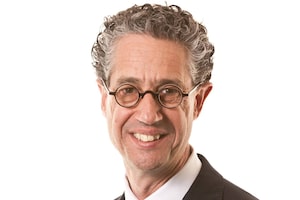"They're just playing poker, right?" asked an investor friend of mine who knows how to make a dollar. "Guys like Petronas, Shell and Chevron have already put a bazillion or two on the table," he said with his furrowed face. "Aren't their investments to date far too large to just walk away from their British Columbian LNG projects?"
I paused before answering. Petronas had just publicly announced that they were unhappy with Canada. It was a tap of the Malaysian company's closely held cards signalling they might be willing to pack up their B.C. drill bits and go home in the absence of better liquefied natural gas investing odds.
It's easy to believe that Petronas's verbal shots in the public arena were a poker-faced "take-it-or-leave-it" bluff to get better terms on the eve of the B.C. government's anticipated LNG tax announcement. But Canadians with a stake in the multibillion-dollar LNG business – for example, investors, governments and suppliers – should be cautious about interpreting such statements as hollow bravado.
Deferring to the wisdom of country singer Kenny Rogers, I replied to my friend, "Surely you know the lyrics to The Gambler?"
You've got to know when to hold 'em
Know when to fold 'em
Know when to walk away
And know when to run.
If the house doesn't deal the right cards, any or all of the 17 LNG consortia will fold 'em (delay), walk away (shelve plans indefinitely) or even run away (cash in their chips and leave the country). Those who think otherwise are sniffing too much LNG.
A few hundred million dollars, or even a billion, is not a big ante to corporations with global reach. Multinationals such as Shell, Woodside and Exxon Mobil have a demonstrated track record of running away from megaprojects, forfeiting their bet and the pot. Somèe recent examples over the past two years, are listed in Table 1. Canada is not exempt from the list.
Surely the precedent of Apache Corp., the American independent that left Chevron's Kitimat LNG consortium this summer, hasn't been forgotten? Cancellations routinely happen upstream and downstream around the world, so why would anyone think Canada's LNG projects are secure?
Watch for it: More oil and gas megaprojects will be cancelled. The overriding trend is that investors are shying away from shovelling money into the dark abyss of long-term, multibillion-dollar megaprojects that have only two guarantees: higher-than-expected costs and delayed startup. Instead, capital is being rationed toward shorter, smaller projects where payback is faster and more certain (Canada has plenty of those types of upstream projects that are attracting record investment).
Much attention is focused on B.C.'s LNG tax policy, to be unveiled in October. However, the showing of this card will not be the defining moment for the 17 LNG consortia. More cards need to be flipped to gauge the odds. Aside from a multitude of regulatory uncertainties, there are four levels of taxation that need clarity: federal, provincial, municipal and First Nations. Federal tax matters revolve around accelerating the capital cost allowance, the provincial unknowns lie in the LNG tax, municipalities want their share through property tax and First Nations want some levy on project rents too. All these layers of taxation collectively factor into the viability of each project. None are yet fully resolved. And just like in a poker game, nobody is showing their hand.
It's moot to debate whether any or all of the proposed taxes are fair or unfair, too much or too little. But there is a stark reality for any LNG project: There is only so much money to play for on the table. If the house is thinking about taking too many chips away before the game ends, players will walk or run, no matter how much has been already bet.
And there is more to consider. Nobody wants to play at an expensive casino where the odds are poorer than those across the street. Canada is well positioned on resources, but doesn't hold aces on energy infrastructure. It's no secret that across the border, U.S. LNG projects have a bigger pot with increasingly attractive odds, from Oregon down to Texas. Ironically, it's starting to look like upstream natural gas producers in Canada may end up being agnostic to B.C. LNG. Better economics may ultimately be found through their traditional American markets, although that's not an optimal outcome for resource sovereignty or domestic employment.
LNG poker players in Canada, whether they are stakeholders in industry, periphery or government, seem to be counting their money before a single pipe has been welded or plant assembled. Surely there is more to be learned from Mr. Rogers' wisdom.
You never count your money
When you're sittin' at the table
There'll be time enough for countin'
When the dealin's done.
"Yes, they're playing poker," I told my friend, "and they've played enough to know when to keep betting, and when the dealin's done."
Peter Tertzakian is chief energy economist at ARC Financial Corp. in Calgary and the author of two best-selling books, A Thousand Barrels a Second and The End of Energy Obesity.
 Peter Tertzakian
Peter Tertzakian